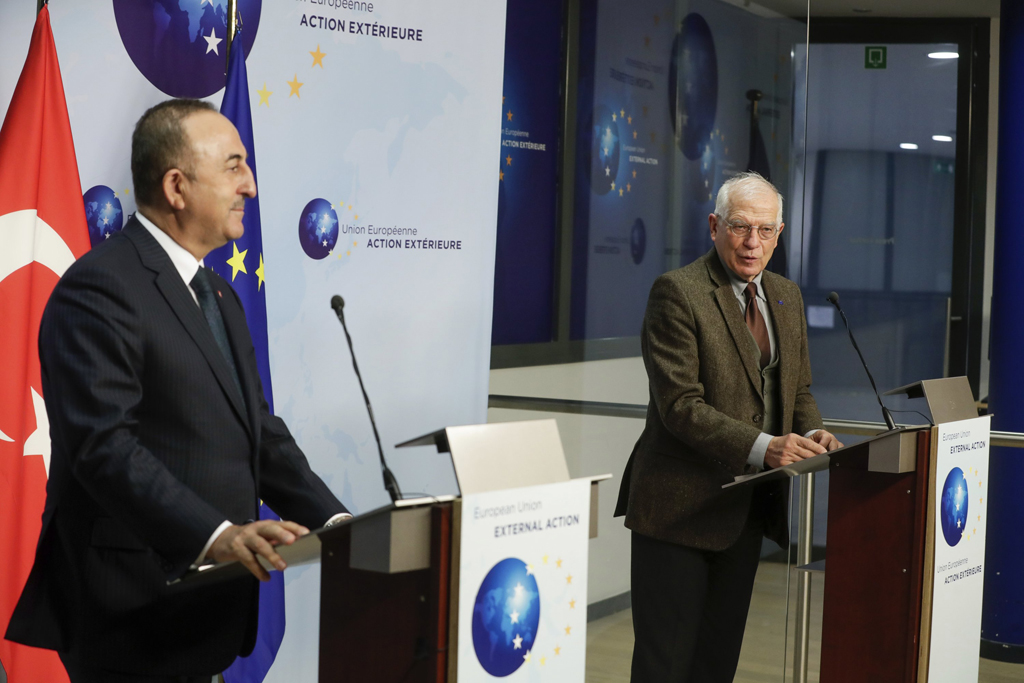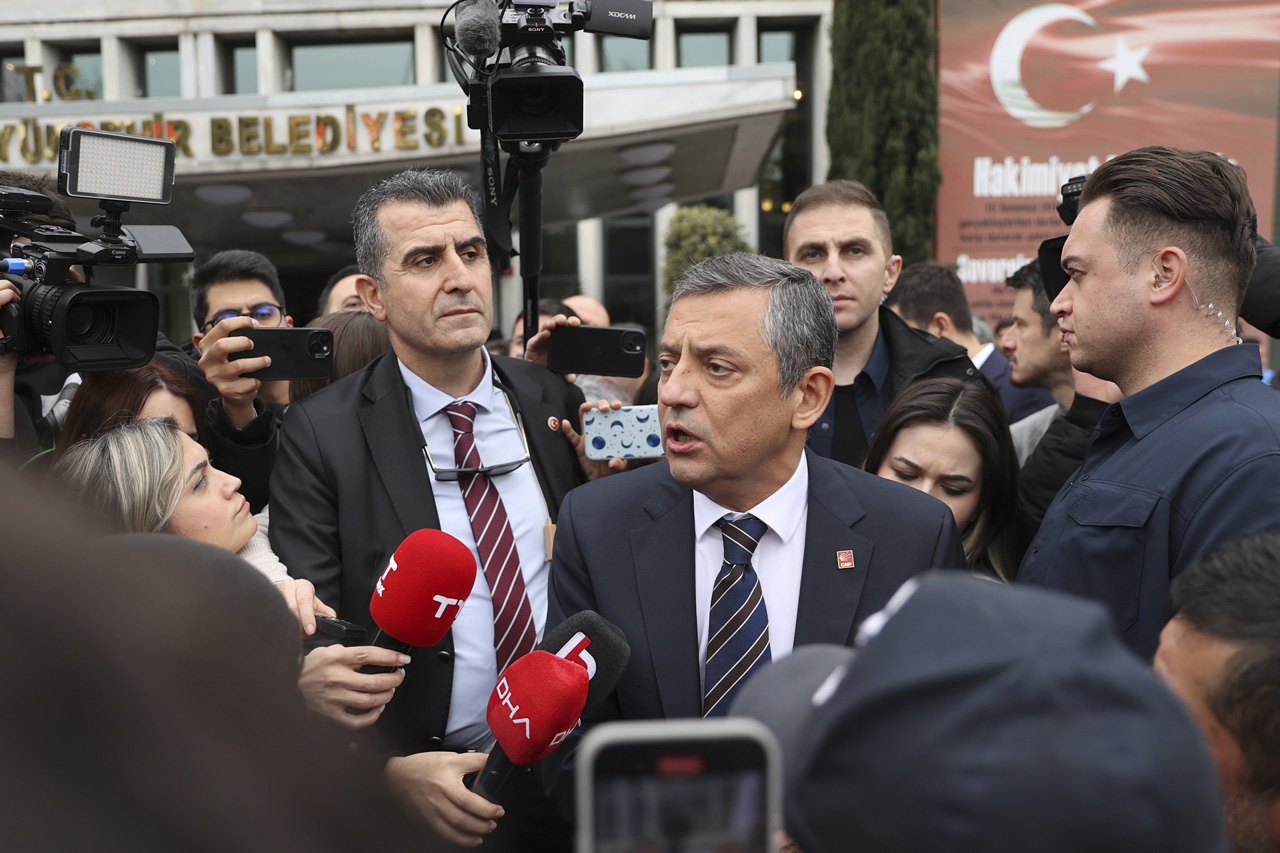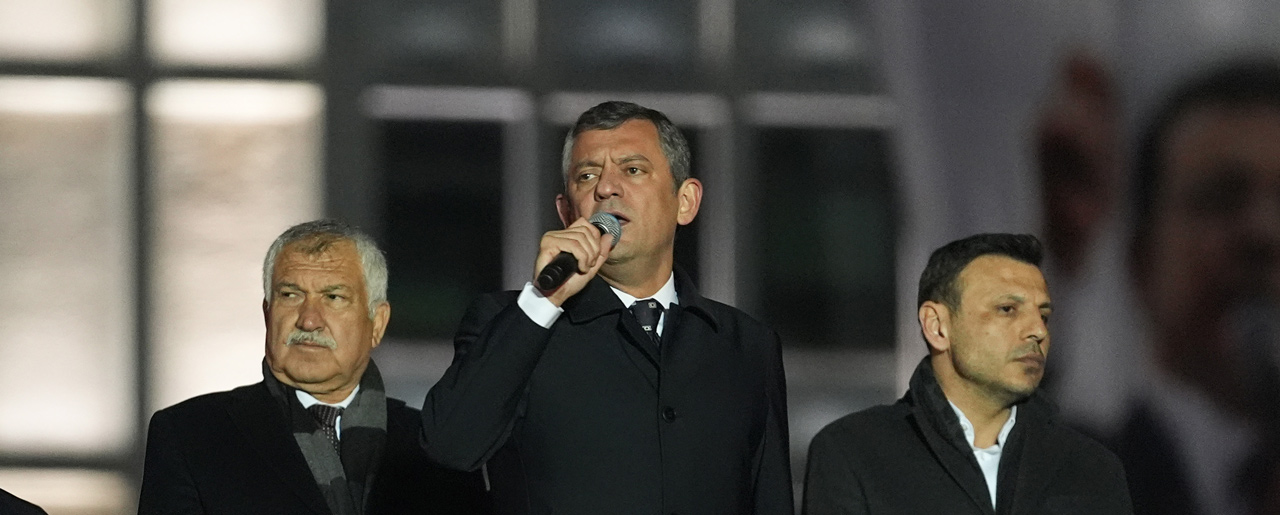- Visa-free travel
- Modernization of the customs union
- Financial support for the Syrian refugees in Turkey
- Broader cooperation against terrorist groups such as the PKK and the Gülenist Terror Group (FETÖ); the removal of Turkey's defense procurement restrictions; and increased direct foreign investment (FDI) from European investors.
Athens' spoiler effect
There will be some spoilers in the improvement of the Turkey-EU relationship. The Greek side is generating artificial tension in the Eastern Mediterranean with its maximalist claims. Athens tried to unite Turkey's competitors and adversaries in the region around the idea of the Eastern Mediterranean Gas Forum (EMGF). Greece and the Greek Cypriot administration managed to turn their problems with Turkey into a broader Turkey-EU problem. The bloc's member countries who had issues with Ankara managed to deepen the rift generated by those two neighbors. Greek authorities benefitted from Ankara's problems with Cairo, Abu Dhabi, Washington, Paris, Tel Aviv, Riyadh, the Greek Cyprus administration and eastern Libya, controlled by putschist Gen. Khalifa Haftar. They also prospered from efforts to isolate and sideline Turkey in the region. This containment strategy, in turn, deteriorated Ankara's relations with Brussels. Some EU member countries no longer want to sponsor Athens' tensions with Ankara. While Greek Prime Minister Kyriakos Mitsotakis worked on arms procurement deals with France, Israel and the U.S., Berlin and Brussels are still worried about Athens' debt and financial instabilities. Greece's already troubled economy is further affected by the tourism sector's plunge due to the pandemic. There is no prospect of improvement in the Greek economy in the near future, but Athens aspires to increase its military spending. Greek politicians can only justify this policy by maximizing the Turkish threat and provoking Ankara to mobilize its military. While Ankara is disturbed about Athens' efforts to violate its sovereignty in the Aegean Sea and encourage Turkey in the Eastern Mediterranean, Greece is not considered a significant strategic challenge to Ankara. The maximalist and aggressive behavior of the Mitsotakis government may be costly in the medium term to the Greek people. Athens' policies against Turkey are not sustainable unless Greece turns its ambitions into the priorities of "great powers." The EU lacked both a long-term vision and a strategic outlook to accommodate such a strategic partner like Turkey. Any planning was constrained by the short-term advantages of European politicians. This stalemate in Turkey-EU relations seems like it will change in the coming months. Ankara is working on an effective reform program in the political, legal and economic fields. Çavuşoğlu also reiterated Turkey's call for an Eastern Mediterranean conference to sort out differences with key stakeholders. Now the ball is on the Greek side. The 61st round of exploratory talks between Ankara and Athens will be conducted on Jan. 25. Ankara is still cautious about the potential for Athens to act as a spoiler, but the exploratory talks are a better alternative than a further escalation in Turkish-Greek relations. For Turkey, the best outcome can be separating the tensions with Greece and the Greek Cypriot administration from Ankara's overall relations with the EU. There is a lot more for Turkey to improve on with the EU if this initial goal is achieved.
[Daily Sabah, January 23, 2021]









